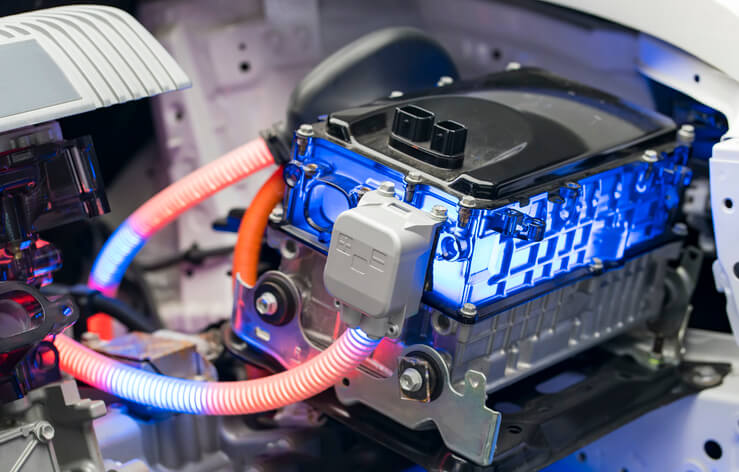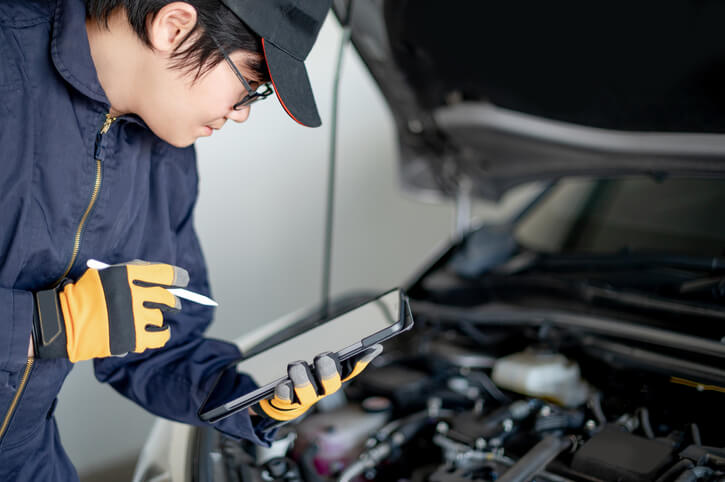3 Core EV Concepts Covered In Our Hybrid And Electrical Mechanic Training Program
Electric vehicles (EVs) have emerged as the leading force in the ongoing transportation revolution, promising cleaner and more efficient mobility solutions. As the demand for EVs continues to surge, the need for highly skilled professionals capable of servicing and maintaining these groundbreaking vehicles has become more pressing. Our Hybrid and Electrical Mechanic Training Program stands at the forefront of this transformation, preparing future technicians to master the intricacies of electric and hybrid vehicles.
1. General Maintenance in the Hybrid and Electrical Mechanic Training Program
General maintenance is the cornerstone of any successful automotive technician’s skill set, and it’s no different for hybrid and electric vehicles. In our training program, students learn the secrets of servicing EVs, including routine tasks like changing oil and filters, tire rotations, and brake inspections. However, working on EVs requires unique precautions and knowledge due to the high-voltage electrical systems integrated into these vehicles.
Safety is paramount, our program emphasizes the importance of understanding EV electrical systems and ensuring they are powered down adequately before attempting any maintenance or repairs. Technicians learn how to safely identify and disable high-voltage systems, reducing the risk of electrical shock or other accidents. Additionally, our students become well-versed in troubleshooting and diagnosing issues in the complex electrical systems that power these vehicles, enabling them to provide efficient and effective maintenance services.

2. Mastering Energy Storage Systems
One of the fundamental differences between traditional gasoline-powered vehicles and EVs is their energy storage systems. Our program dedicates significant attention to understanding and working with these systems, which typically consist of lithium-ion or similar batteries. Students learn how to handle these batteries safely, addressing concerns like thermal management and battery cooling.
Understanding battery health and performance is crucial for ensuring an EV’s longevity and efficiency. Our hybrid and electrical mechanic training program provides students the tools to assess battery condition, including capacity testing and diagnosing potential issues such as cell degradation. This knowledge allows our graduated technicians to advise vehicle owners on proper battery maintenance and, when necessary, perform battery replacements or repairs.
Moreover, students delve into the world of charging infrastructure, including the different types of charging stations, their compatibility with various EV models, and the importance of following safety protocols during charging. With EVs’ range anxiety being a common concern, our training program equips technicians with the expertise to optimize charging solutions and provide accurate guidance to EV owners.

3. Understanding Transmission and Drivetrain Modules
In the world of electric and hybrid vehicles, the traditional transmission is replaced by a more streamlined drivetrain system. Our program covers essential aspects of these drive trains, including regenerative braking, planetary gear sets, and launch control.
Regenerative braking is a key feature that sets EVs apart from their gasoline counterparts. Students learn how regenerative braking systems work, capturing kinetic energy during deceleration and converting it into electrical energy to recharge the vehicle’s batteries. Understanding this technology allows our graduated hybrid and electric vehicle mechanics to maintain and fine-tune these systems for optimal performance.
Planetary gear sets are another critical component of EV drive trains. Our program delves into the mechanics of planetary gear sets and how they contribute to variable gear ratios, enabling smoother acceleration and energy-efficient operation. Students gain hands-on experience in diagnosing and servicing planetary gear sets, ensuring the seamless operation of EVs.
Launch control, often associated with high-performance vehicles, also finds its place in our curriculum. Our training program teaches students how to harness the power of electric motors for rapid acceleration and optimal launch control. This knowledge is valuable for enthusiasts and technicians working on EVs designed for sportier driving experiences.
Are you considering automotive training?
Contact ATC Surrey to learn how you can get started.


